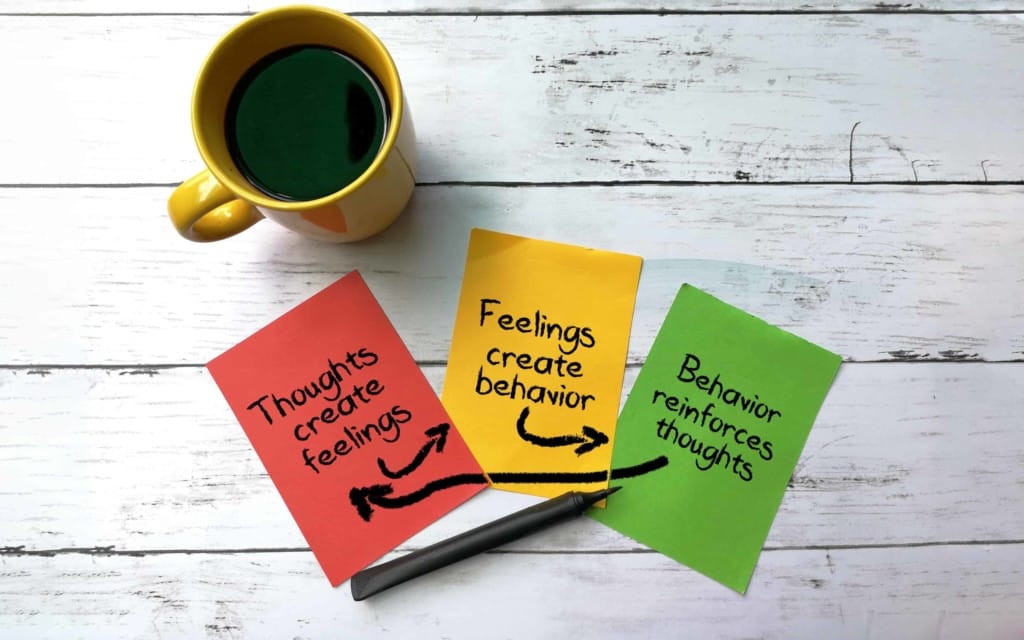Insomnia is a horrible and debilitating condition.
If you’ve ever spent a night tossing and turning, struggling to shut down and get the rest you so desperately need, then you’ll know how awful insomnia can be. Unfortunately, the American Academy of Sleep Medicine found that this issue affects around 35% of all adults.
What’s more, about 10% of the population suffer from something called “Chronic Insomnia Disorder.” This means that you have trouble falling asleep or staying asleep at least 3 nights during the week.
Ultimately, the less you sleep, the worse you feel throughout the day. Your sleeping phases are crucial to your health, as they’re when your brain and body recover from the challenges of the day you’ve left behind. When you fail to get the right amount of rest each night, your mind deteriorates, making it difficult to handle complex information and emotions.
What’s more, an absence of sleep also causes issues with your immune system, metabolism, and other critical physiological symptoms. It’s no wonder that the US spends about $60 billion a year on lost productivity caused by sleep disorders.
While prescription sleep aids are a standard treatment for insomnia, recent studies suggest that there may be a better, less risky way to deal with sleep problems. Cognitive behavioural therapy for insomnia could be the safest and most effective way to give you the rest you need.

What is cognitive behavioural therapy?
Before we start exploring the benefits of cognitive therapy for insomnia, let’s find out what CBT is. Cognitive behavioural therapy, or “CBT” is a form of talking therapy that’s designed to help people manage their issues by adapting the way that they think and act. Typically, doctors recommend CBT for the treatment of depression and anxiety. However, the process can be useful for a wide range of physical and mental health problems.
CBT is based on the idea that our thoughts, feelings, actions, and physical sensations are all linked. Because of this, a negative thought can leave you trapped in a vicious cycle of bad decisions and dangerous behaviours. CBT aims to help people overcome problems by breaking down their ideas and trying to replace negative feelings with positive ones.
During CBT for sleep issues, you’d discuss the nature of your sleep disorder with your therapist, discussing things like anxiety, nightmares, and other problems that stop you from getting rest. You’ll even address the thoughts that run through your mind when you’re trying to shut off at night. Your therapist can then suggest changes that you need to make to your thought patterns to begin your sleep therapy. The eventual aim of the process is to give you skills that you can apply to your daily issues with insomnia.
The pros and cons of cognitive sleep therapy
Importantly, like any form of treatment, CBT isn’t a one-size-fits-all thing. Some people will find CBT for insomnia to be very useful. Other people might need a different style of therapy to overcome their condition. Often, the key to success with this particular treatment is making sure that you’re open to the idea of changing your thought patterns and behaviours before you get started. If you approach therapy with the right attitude, you’re more likely to succeed.
Some of the most significant advantages of cognitive behavioural therapy for insomnia include:
- You don’t have to rely exclusively on medication with possible side effects to deal with insomnia.
- It can sometimes be completed in a reasonably short time frame compared to other kinds of talking therapies.
- The highly structured nature of CBT means that you can get your sleep therapy in a range of different formats, including self-help books, group sessions, and one-on-one interactions.
- You’ll learn practical and engaging strategies you can use for your everyday life — even after your treatment has finished.
Of course, there are some downsides to CBT for sleep disorders too. For instance:
- You need to be fully committed to the process to get something from it. While a therapist can offer advice and guidance, it’s up to you to make the real change.
- Attending CBT sessions and doing your therapeutic homework can take up a lot of your time and emotional energy.
- It’s not always ideal for people with more complicated mental health
requirements, or those with learning difficulties. - It requires you to confront your emotional responses to triggers and feelings of anxiety, which means that you may have moments of emotional discomfort.

Is CBT effective for insomnia?
So, is cognitive therapy for insomnia a good idea?
Research is increasingly beginning to suggest that CBT may be the best treatment for a range of sleep disorders. If you have issues with falling asleep, staying asleep, or waking up before you’re fully rested, then cognitive behavioural therapy for insomnia, or “CBT-I” may be able to help.
With CBT, you’ll follow a structured program that allows you to identify and replace the behaviours and thoughts that worsen or cause your sleep problems. Most importantly, unlike medications and sleeping pills, cognitive behavioural sleep therapy pushes you to get to the bottom of the underlying causes for your insomnia. That means that you can address the root of the issue.
During insomnia therapy, you’ll work with a trained expert to address your behaviour and processes to do with sleep. Your therapist will be able to provide an in-depth education on things like sleep hygiene, relaxation treatments, and how you can potentially improve your attitude towards sleep.
Most CBT sessions for insomnia will last for a set period. You might have between 4 and 12 sessions depending on the severity of your condition, and these will often last about 30 minutes. Usually, CBT for sleep will involve working with a psychologist that has a special background in insomnia and sleep-based patients. Over the course of your various sessions, your misconceptions about sleep will be eliminated, while better sleep hygiene habits are developed.
Cognitive behavioural therapy for insomnia can work — but only if you put the effort in. Ultimately, it focuses on addressing the mistaken beliefs and emotions that cause you to struggle with your sleep. For instance, if you have sleep anxiety that forces you to stay awake at night or avoid going to bed, then your therapist will help you to overcome these feelings of fear and worry.
CBT can also give you strategies that you can use in your day-to-day life to reduce feelings of panic that you might have when your brain tells itself “I’m not going to get enough sleep tonight” or something similar.
Studies into the effectiveness of cognitive behavioural therapy for sleep disorders find that the right treatment can reduce sleep latency by between 30 to 45 minutes. Additionally, the strategy can also improve your total sleep time by 30 to 60 minutes. One meta-study discovered that CBT might be just as effective as sleep medications at tackling sleeping issues, and has the benefit of providing a long-term solution, which most pills do not.

Typical components of cognitive behavioural therapy for insomnia
Importantly, CBT for insomnia isn’t a quick and easy cure for your sleeping issues. It requires a lot of steps that you may find difficult at first.
While the “cognitive” part of CBT teaches you to understand and change your negative beliefs and thoughts that may be contributing to your sleep issues, the behavioural therapy asks you to take steps to change your actions. If you’ve ever tried to quit a bad habit before, you’ll know that changing ingrained behaviours is rarely easy.
To start your CBT for sleep issues, a therapist will usually ask you to keep a sleep diary, where you can record the details of your sleeping problems and provide insights that help your expert to decide on the best approach. For instance, if you always worry about a recurring nightmare before you go to bed, your therapist will be able to see that the worry of that nightmare could be keeping you awake.
Once they’ve looked at your sleep diary, your therapist will be able to use two separate components in your cognitive sleep therapy to address your insomnia.
Thought challenging in CBT for sleep
The first stage of cognitive behavioural sleep therapy is challenging your thoughts. This process, otherwise known as “cognitive restructuring,” asks you to test the negative thoughts that are contributing to your insomnia. There are three steps to this process:
- Identifying your negative thoughts: What are you worried about each night? Are you panicking about the day ahead, or concerned that you’re not going to get enough sleep? Are you frightened that you might fall asleep and encounter a recurring nightmare?
- Challenging dangerous thoughts: Once you know which ideas are upsetting you, you can begin to challenge the evidence. For instance, though you might have a nightmare, the chances are just as good, if not better, that you’ll have a good dream.
- Replacing negative thoughts: Once you can challenge your negative thoughts, you can also start to replace them with more positive thinking. For instance, if you’re worried that you won’t get enough sleep, and this will harm your performance at work, you can tell yourself: “I’ll still get through the day, even if I’m tired.”

Behavioural techniques in CBT for sleep disorders
The behavioural part of CBT is often the most challenging aspect. You can’t just adjust the way that you think about sleep; you also need to adapt your actions too. While the cognitive element of your sleep therapy will ask you to understand your fears and address them from a realistic perspective, the behavioural part of this treatment requires you to take actionable steps towards changing your sleeping routine.
For instance, some of the behavioural techniques suggested by your therapist might include:
- Sleep restriction therapy (SRT): When you’re trying to overcome the issue of insomnia, forcing yourself not to sleep might seem like the worst possible idea. However, SRT aims to reduce the amount of time you spend lying in bed awake at night, by forcing you to deprive yourself from sleep for a little longer than usual. This makes you more tired, which encourages your body to allow rest the next night. Additionally, sleep restriction therapy helps you to see first-hand that losing out on sleep doesn’t have to be the end of the world. This may help you to think more positively about your uncomfortable nights.
- Stimulus control therapy: This process involves training you to use your bedroom in a particular way. In other words, it’s about making sure that you only use your bedroom for sleep and sex, rather than also using it as an office, an entertainment room, and a gym. Stimulus control therapy also focuses on getting rid of anything that could be stopping you from resting at night, such as alarm clocks, noise disruptions and light.
- Improving your sleep hygiene: Guidance on how to improve your sleep hygiene is often a big part of CBT for insomnia. Your therapist will help you to understand how your sleep environment needs to be cool, quiet, and comfortable to improve your chances of a good night’s sleep. You might even need to use sound machines and earplugs to block out additional noise. Your doctor will also recommend avoiding things that can damage your sleep hygiene, like using caffeine and nicotine at later times in the day.
- Passively remaining awake: Ideally, we should all stick to a sleep schedule — even on weekends. However, there will be times in your life when you just can’t get to sleep — whether you want to or not. Remaining passively awake is all about accepting the fact that you can’t sleep at certain times, rather than panicking about how much sleep you can or can’t get.
- Relaxation training: To boost your chances of falling asleep at the right time each night, your therapist can also provide some relaxation techniques to supplement your sleep therapy. They might encourage active muscle relaxation to help you feel more comfortable in your bed. Other methods might include using mindfulness meditation, breathing exercises, and journaling to get rid of lingering anxiety.
- Biofeedback: Biofeedback in CBT for insomnia involves using sensors to measure the physiological functions that could be stopping you from sleeping properly. Biofeedback sensors can help you to recognise the physical impact of your body’s anxiety. This strategy can also help doctors to see if there are any physiological reasons for your insomnia.
Usually, the most effective treatment for insomnia therapy will include both cognitive therapies, and a range of behavioural strategies. Some therapists are even beginning to explore newer ways to address sleeping issues too. For instance, you might find that your doctor or therapist recommends using hypnosis to help you overcome your sleep issues if basic CBT isn’t enough. Hypnotherapy combined with CBT can help you to address the underlying thought patterns in your subconscious that might be harder to deal with in your waking life.

How long does it take cognitive behavioural therapy to work?
Research indicates that CBT is better than many other medical interventions intended for insomnia. CBT for sleep disorders can transform your life, helping you to find quick and easy ways to overcome your issues and manage sleep problems in the long-term. CBT is particularly effective at dealing with conditions caused by PTSD, anxiety, and other mental health problems.
The biggest downside of this form of insomnia therapy is that it takes time and effort. You can’t just pop a pill and expect your sleep to suddenly improve with CBT. You need to put the work in. That means that it can take a while for CBT to work.
Fortunately, there are things you can do to speed up the outcomes of your therapy. For instance, the first step for most people is finding a therapist that’s right for your needs. You need to feel comfortable talking to your therapist so that you can get to the bottom of your issues. Other ways to make the most of CBT sleep therapy include:
- Adding more physical activity to your day: Studies show that exercise relieves anxiety and stress while improving your potential for better sleep. Make sure that you get plenty of exercise each day.
- Reducing your exposure to stress and anxiety:If you can, try to make sure that you’re not exposing yourself to stress and anxiety that you shouldn’t need to deal with. Avoid people that upset you and look for ways to change your daily activities so that you’re less likely to encounter negative emotions.
- Be careful about what you eat and drink: Avoid overeating just before you go to bed, as this can keep your body awake, and make it difficult to shut down. It’s also a good idea to avoid going over-the-top on nicotine, caffeine, and sugary foods.
CBT for sleep disorders vs medication: Which is better?
There’s no one-size-fits-all cure for insomnia.
Some people will need medication to help them to get to sleep — at least to begin with. Other people will need a form of therapy that’s different to CBT for rest.
However, the evidence is growing increasingly strong that CBT-I might be a much better solution for sleeping disorders than medication alone. Unlike pills, your cognitive behavioural therapy for insomnia will address the underlying causes of your sleep disorders. Rather than just relieving the symptoms, you get a strategy for overcoming the condition entirely.
However, it does take time and effort to make sure that CBT works. With that in mind, your doctor might incorporate sleeping pills into your routine to help you get started with a more healthy sleeping pattern. You may also need pills to start your treatment if your exhaustion makes it difficult for you to deal with emotions logically. The good news is that you don’t need to stay on those pills for long. Studies show that cognitive behavioural sleep therapy can help patients, regardless of whether they’re using medication.
If your doctor and therapist start your treatment with medication, you’ll usually be weened off those pills quite quickly, particularly as you start to learn new skills to handle your insomnia and overcome the thoughts or behaviours that stop you from sleeping. Additionally, the pills used alongside your CBT are likely to be mild. Your doctor may even suggest using supplemental treatments like melatonin. The exact prescription that you get will depend on your history of responses to sleep treatments, and any other medications you might be taking.

Is sleep therapy the best treatment for insomnia?
No matter why you might be suffering from insomnia, or how long you’ve been dealing with this condition, the evidence suggests that CBT for insomnia is a great treatment option. CBT for sleep helps people with nightmare disorder, sleep anxiety, and even underlying medical conditions that may interfere with their sleep. Using CBT, it’s even possible for some people to address feelings of pain and discomfort that might harm their sleeping patterns.
The great thing about cognitive therapy for insomnia, is that your therapist and doctor will work with you to create a personalised treatment plan that suits your specific needs. This helps you to overcome the issues that are most important to you when handling sleep disorders.
However, it’s important to remember that CBT isn’t always a quick and easy treatment. Unlike some other solutions intended to cure insomnia, CBT requires you to work at changing your thought and behavioural habits. It can be tough, emotional, and even overwhelming at times. The good news is that if you put the work in, the result could be a long-term strategy for getting your sleep back on track.
Keen to learn more about treatments for insomnia? Subscribe to siestio.com to explore your options!
Siestio. Sleep Matters.







